The Divine Battle: Unfolding the Saga Nine Forms of Shakti (नवशक्ति) - Shubh Navratri
Introduction:
In the rich tapestry of Hindu mythology, the triumph of good over evil is a recurring theme, symbolized through various deities and their powerful manifestations. One of the most profound stories is the battle between the demon kings Shumbh and Nishumbh and the goddesses who emerge to restore cosmic balance. This tale, rooted in the Mārkaṇḍeya Purāṇa, not only celebrates the victory of divine forces but also introduces us to the nine forms of Shakti, the feminine power of the universe.
As we journey through Navratri, a festival dedicated to the worship of these nine goddesses, we will explore this epic story, unraveling the power, wisdom, and grace of each form of Shakti over the next nine days.
Premise:
Long ago, the balance of the universe was threatened by two demon brothers, Shumbh and Nishumbh. Armed with immeasurable strength and arrogance, these demons sought to conquer the celestial realms. Their ruthless ambition led them to take control of Trilok—the three worlds—and seize the offerings and powers of the gods. The deities, stripped of their rights and forced into exile from heaven, were left with no choice but to seek divine intervention.
In their time of need, the gods turned to the supreme feminine force—Aparajita Devi. It was time for the divine mother to step forth and restore order. This invocation set the stage for one of the most legendary battles between the divine and the demonic.
The Story Unfolds:
Upon the gods’ desperate prayers, the goddess Parvati appeared in her divine form. From her being emerged Ambika, the radiant embodiment of power and grace. As the tale of Shumbh and Nishumbh progressed, the demons’ servants, Chand and Mund, caught a glimpse of the dazzling Ambika. Mesmerized by her beauty, they rushed to inform their master Shumbh, extolling her unmatched radiance and urging him to make her his own.
Filled with pride and entitlement, Shumbh sent his messengers to Ambika, commanding her to join him. However, the goddess was no ordinary being. She responded with a challenge: only the one who could defeat her in battle would be worthy of becoming her master.
Enraged by her defiance, Shumbh dispatched his fierce general, Dhumralochan, with an army of sixty thousand demons to capture Ambika. But the divine mother was no ordinary opponent—she obliterated Dhumralochan with a single roar, and her lion tore through his army, leaving no survivors.
Shumbh’s fury only grew. He then sent Chand and Mund, but as they led another mighty force into battle, Ambika’s anger took a fierce form. From her furrowed brow, Goddess Kali, dark as night, emerged, her fearsome figure wielding a sword and a noose. In a swift and brutal fight, Kali decapitated Chand and Mund, laying their bodies at the feet of Ambika.
With his generals fallen, Shumbh had no choice but to face the goddesses himself. He gathered thousands of warriors and marched onto the battlefield, determined to emerge victorious. But as the battle raged on, something incredible happened—Brahma, Vishnu, Shiva, and Indra, the mightiest gods, lent their divine powers to Ambika. From their essence emerged nine distinct forms of Shakti, each with unique strength, ready to annihilate the demon forces.
This sets the stage for the battle to come, as each day of Navratri we will delve into the story of these nine goddesses, starting with Brahmani, the power of creation and knowledge. Stay tuned as we continue to explore the divine manifestations of Shakti and their role in this epic tale of victory and justice.
पुरा शुम्भनिशुम्भाभ्यामसुराभ्यां शचीपतेः।
त्रैलोक्यं यज्ञभागाश्च हृता मदबलाश्रयात्॥ 85.1
हृताधिकारास्त्रिदशास्ताभ्यां सर्वे निराकृताः।
महासुराभ्यां तां देवीं संस्मरन्त्यपराजिताम्॥ 85.4
ततोऽम्बिकां परं रूपं बिभ्राणां सुमनोहरम्।
ददर्श चण्डो मुण्डश्च भृत्यौ शुम्भनिशुम्भयोः॥ 85.42
काप्यास्ते स्त्री महाराज भासयन्ती हिमाचलम्॥ 85.43
स्त्रीरत्नमेषा कल्याणी त्वया कस्मान्न गृह्यते॥ 85.53
यो मां जयति संग्रामे यो मे दर्पं व्यपोहति।
यो मे प्रतिबली लोके स मे भर्त्ता भविष्यति॥ 85.69
तेनाज्ञप्तस्ततः शीघ्र स दैत्यो धूम्रलोचनः।
वृतः षष्ट्या सहस्राणामसुराणां द्रुतं ययौ॥ 86.5
हूङ्कारेणैव तं भस्म सा चकाराम्बिका ततः॥ 86.9
ततो ध्रुतशटः कोपात् कृत्त्वा नादं सुभैरवम्।
पपातासुरसेनायां सिंहो देव्याः स्ववाहनः॥ 86.11
आज्ञप्तास्तु ततो दैत्याश्चण्डमुण्डपुरोगमाः।
चतुरङ्गबलोपेता ययुरभ्युद्यतायुधाः॥ 87.1
ततः कोपं चकारोच्चैरम्बिका तानरीन् प्रति।
कोपेन चास्या वदनं मसीवर्णमभूत् तदा॥ 87.4
भ्रुकुटीकुटिलात् तस्या ललाटफलकाद्द्रुतम्।
काली करालवदना विनिष्क्रान्तासिपाशिनी॥ 87.5
उत्थाय च महासिंहं देवी चण्डमधावत।
गृहीत्वा चास्य केशेषु शिरस्तेनासिनाच्छिनत्॥ 87.19
अथ मुण्डोऽप्यधावत् तां दृष्ट्वा चण्डं निपातितम्।
तमप्यपातयद्धभूमौ सा खड्गाभिहतं रुषा॥ 87.20
ततः कोपपराधीनचेताः शुम्भः प्रतापवान्। 88.2
निर्जगाम महासैन्यसहस्रैर्बहुभिर्वृतः॥ 88.6
देवी सिंहस्तथा काली सरोषैः परिवारिताः॥ 88.10
एतस्मिन्नन्तरे भूप विनाशाय सुरद्विषाम्।
भवायामरसिंहानामतिवीर्यबलान्विताः॥ 88.11
ब्रह्मेशगुहविष्णूनां तथेन्द्रस्य च शक्तयः।
शरीरेभ्यो विनिष्क्रम्य तद्रूपैश्चण्डिकां ययुः॥ 88.12
यस्य देवस्य यद्रूपं यथा भूषणवाहनम्।
तद्वदेव हि तच्छक्तिरसुरान्योद्धुमायमौ॥ 88.13
Day 1: Invocation of Brahmani Shakti
On Day 1 of Navratri, we honor Brahmani Shakti, the divine embodiment of creation and knowledge. Watch as we invoke her presence with a sacred verse from the Mārkaṇḍeya Purāṇa, beautifully sung to celebrate her arrival on a swan, holding a rosary and an ewer in her hands. This divine hymn sets the tone for the nine-day journey through the manifestations of Shakti as they battle the forces of evil.

हंसयुक्तविमानाग्रे साक्षसूत्रकमण्डलुः।
आयाता ब्रह्मणः शक्तिर्ब्रह्माणी साभिधीयते॥
Transliteration:
haṃsayuktavimānāgre
sākṣasūtrakamaṇḍaluḥ।
āyātā brahmaṇaḥ śaktirbrahmāṇī sābhidhīyate॥
Hindi Translation:
हंसयुक्त विमान पर बैठकर और हाथमें माला
तथा कमंडल लिये हुए ब्रह्मा की शक्ति ब्रह्माणी आई।
English translation:
Brahma's power, Brahmani, came
sitting on a swan-plane,
holding a garland and an ewer in her hands.
Source:
mārkaṇḍeyapurāṇa 88.14
Day 2: Invocation of Maheshwari Shakti
On Day 2 of Navratri, we invoke Maheshwari Shakti, the fierce power of Lord Shiva. Riding a bull, wielding a majestic trident, and adorned with serpents and the crescent moon, she embodies divine strength and fearlessness. Watch as we recite a powerful verse from the Mārkaṇḍeya Purāṇa to honor her presence.

माहेश्वरी वृषारूढा त्रिशूलवरधारिणी।
महाहिबलया प्राप्ता चन्द्ररेखाविभूषणा॥
Transliteration:
māheśvarī vṛṣārūḍhā triśūlavaradhāriṇī।
mahāhibalayā prāptā candrarekhāvibhūṣaṇā॥
Hindi Translation:
बैल पर सवार होकर हाथमें सुन्दर त्रिशूल
धारणा किये हुए,
भुजाओं में महासपों को लपेटे और चन्द्रकला भूषण पहिने शिव की शक्ति माहेश्वरी आई।
English translation:
Riding a bull, holding a trident,
with serpents on her arms
and a crescent moon, came Shiva's power, Maheshwari.
Source:
mārkaṇḍeyapurāṇa 88.15
Day 3 of 9 - Invocation of Kaumari Shakti
On Day 3 of Navratri, we invoke Kaumari Shakti, the powerful manifestation of Lord Kartikeya. Riding on a magnificent peacock and wielding immense power, she steps onto the battlefield, ready to confront the forces of evil. This verse from the Mārkaṇḍeya Purāṇa beautifully captures her divine presence.

कौमारी शक्तिहस्ता च मयूरवरवाहना।
योद्धुमभ्याययौ दैत्यानम्बिका गुहरूपिणी॥
Transliteration:
kaumārī śaktihastā ca mayūravaravāhanā।
yoddhumabhyāyayau daityānambikā guharūpiṇī॥
Hindi Translation:
हाथमें शक्ति लिये हुए, सुन्दर मयूर पर
सवार होकर
स्वामिकार्तिकेय की शक्ति कौमारी दैत्यों से लड़ने को आई।
English translation:
Holding great power, riding a
peacock,
Lord Kartikeya’s power, Kaumari, came to fight the demons.
Source:
mārkaṇḍeyapurāṇa 88.16
Day 4 of 9 - Invocation of Vaishnavi Shakti
On Day 4 of Navratri, we honor Vaishnavi Shakti, the divine power of Lord Vishnu. Seated upon the mighty Garuda, she holds the conch, discus, mace, bow, and sword, symbolizing her strength and readiness to protect the universe. Let us invoke her blessings for courage and righteousness in our lives.

तथैव वैष्णवी शक्तिर्गरुडोपरि संस्थिता।
शङ्ख-चक्र-गदा-शार्ङ्ग-खड्गहस्ताभ्युपाययौ॥
Transliteration:
tathaiva vaiṣṇavī śaktirgaruḍopari
saṃsthitā।
śaṅkha-cakra-gadā-śārṅga-khaḍgahastābhyupāyayau॥
Hindi Translation:
गरुड़ पर स्थित होकर शंख, चक्र, गदा,
शार्ङ्ग,
खड्ग हाथ में लिये हुए विष्णु की वैष्णवी शक्ति आकर उपस्थित हुई।
English translation:
Sitting on Garuda, holding conch,
discus, mace, bow and
sword in her hands, the Vaishnavi Shakti of Vishnu appeared.
Source:
mārkaṇḍeyapurāṇa 88.17
Day 5 of 9 - Invocation of Varahi Shakti
On Day 5 of Navratri, we revere Varahi Shakti, the divine power of Lord Vishnu in the form of a boar. Her immense strength and fierce form embody protection and destruction of evil. Let us seek her blessings for strength and victory over negativity. .

यज्ञवाराहमतुलं रूपं या बिभ्रतो हरेः।
शक्तिः साप्याययौ तत्र वाराहीं बिभ्रती तनुम्॥
Transliteration:
yajñavārāhamatulaṃ rūpaṃ yā bibhrato
hareḥ।
śaktiḥ sāpyāyayau tatra vārāhīṃ bibhratī tanum॥
Hindi Translation:
यज्ञवाराह का अतुल रूप धारण करने वाले
विष्णु भगवान् की शक्ति भी वाराही रूप से वहाँ आई।
English translation:
The power of Lord Vishnu, who took
the immense form of a boar,
also came there, in the form of Varahi.
Source:
mārkaṇḍeyapurāṇa 88.18
Day 6 of 9 - Invocation of Narsimhi Shakti
On Day 6 of Navratri, we honor Narasimhi Shakti, the fierce power of Lord Narasimha. Taking on the form of a lioness, she separates the stars and embodies supreme strength and protection. Let her roar guide us toward victory over evil.

नारसिंही नृसिंहस्य बिभ्रती सदृशं वपुः।
प्राप्ता तत्र सटाक्षेपक्षिप्तनक्षत्रसंहतिः॥
Transliteration:
nārasiṃhī nṛsiṃhasya bibhratī sadṛśaṃ
vapuḥ।
prāptā tatra saṭākṣepakṣiptanakṣatrasaṃhatiḥ॥
Hindi Translation:
नृसिंह की शक्ति नारसिंही भी नृसिंह के
सदृश शरीर धारण कर आई
और अपने झंडे को आकाश में फहरा कर नक्षत्रों को अलग-अलग करने लगी।
English translation:
Narasimhi, the power of Narasimha,
took a similar form
and raised her flag in the sky, separating the constellations
Source:
mārkaṇḍeyapurāṇa 88.19
Day 7 of 9 - The Mighty Aindri Shakti
On Day 7 of Navratri, we invoke the mighty Aindri Shakti, the powerful force of Indra. Riding on the majestic elephant Airavat, with a thunderbolt in hand and a thousand eyes watching over the cosmos, she represents unstoppable strength and protection. Let her divine energy inspire us all!

वज्रहस्ता तथैवैन्द्री गजराजोपरिस्थिता।
प्राप्ता सहस्रनयना यथा शक्रस्तथैव सा॥
Transliteration:
vajrahastā tathaivaindrī
gajarājoparisthitā।
prāptā sahasranayanā yathā śakrastathaiva sā॥
Hindi Translation:
हाथमें वज्र लिये हुए और गजराज ऐरावत पर
सवार होकर
सहस्र नेत्रों वाली ऐन्द्री आई जिसका स्वरूप इन्द्र जैसा ही था।
English translation:
Aindri, with her thousand eyes and
thunderbolt in hand,
rode upon Airavat, radiating the power and presence of Indra.
Source:
mārkaṇḍeyapurāṇa 88.20
Day 8 of 9 - Invocation of Shivaduti Shakti
On Day 8 of Navratri, we honor **Shivduti Shakti**, the powerful goddess who appointed Lord Shiva as her divine messenger. Revered for her supreme authority, she reminds us of the balance between communication and power. Let her energy of command and grace flow through us this Navratri!

यतो नियुक्तो दौत्येन तया देव्या शिवः स्वयम्।
शिवदूतीति लोकेऽस्मिंस्ततः सा ख्यातिमागता॥
Transliteration:
yato niyukto dautyena tayā devyā śivaḥ
svayam।
śivadūtīti loke'smiṃstataḥ sā khyātimāgatā॥
Hindi Translation:
देवी ने स्वयं शिव को दूतकार्य लिये
नियुक्त किया
इसलिये
इस लोक में वह शिवदूती नाम से प्रसिद्ध हुई।
English translation:
The Goddess herself appointed Shiva
as the messenger and
hence she became known in this world by the name Shivdutī.
Source:
mārkaṇḍeyapurāṇa 88.27
Day 9 of 9 - Invocation of Chamunda Shakti
On the ninth day of Navratri, The final day of Navaratri, we honor Chamunda Devi, named after her victory over the demons Chand and Mund. Her fierce power and divine protection symbolize the ultimate destruction of evil forces.

यस्माच्चण्डञ्च मुण्डञ्च गृहीत्वा त्वमुपागता।
चामुण्डेति ततो लोके ख्याता देवि भविष्यसि॥
Transliteration:
yasmāccaṇḍañca muṇḍañca gṛhītvā
tvamupāgatā।
cāmuṇḍeti tato loke khyātā devi bhaviṣyasi॥
Hindi Translation:
(देवी कल्याणी ने काली से कहा) जो कि
तुम चण्ड और मुण्ड को मार कर
मेरे पास लाई हो इसलिये हे देवि ! तुम चामुण्डा नाम से संसार में विख्यात होगी।
English translation:
Goddess Kalyani said to Kali, "For
killing Chand and Mund,
you will be known as Chamunda in the world."
Source:
mārkaṇḍeyapurāṇa 88.25
Summary and Conclusion - The Victory of the 9 Divine Shaktis
Over the past 9 days, we’ve witnessed the incredible journey of the 9 divine Shaktis, each playing a crucial role in the epic battle against the forces of darkness. Their unity, strength, and courage led to the ultimate defeat of the demons, bringing peace and order to the universe. These stories aren’t just tales of the past but carry timeless lessons for all of us. Let us embrace these qualities in our own lives, face challenges with resilience, and emerge victorious like the divine Shaktis.

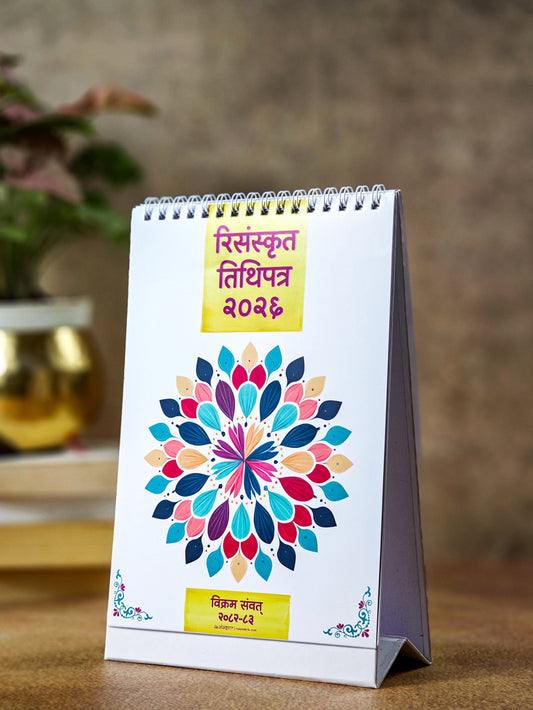

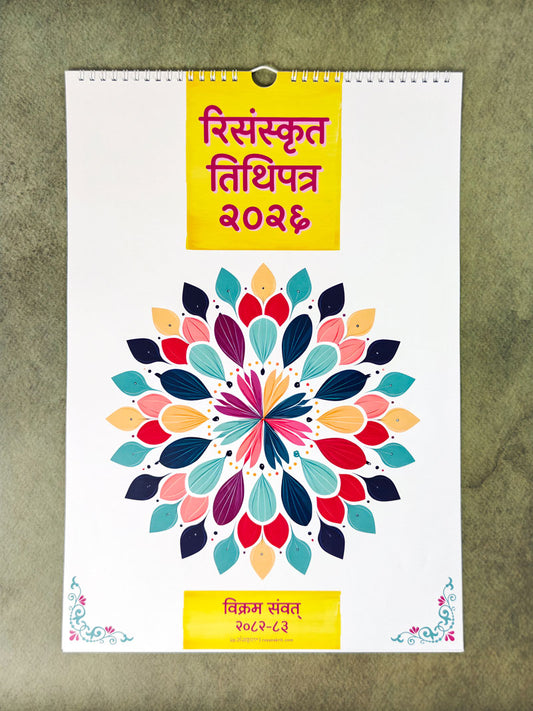

![[New Edition] ReSanskrit® 365 Days of Sanskrit Wisdom | Daily Sanskrit Quotes | With 100+ New Quotes, Hindi & English Translations🆕](http://resanskrit.com/cdn/shop/files/365-calendar-resanskrit-front-hero-shot_533x.jpg?v=1762351171)
![[New Edition] ReSanskrit® 365 Days of Sanskrit Wisdom | Daily Sanskrit Quotes | With 100+ New Quotes, Hindi & English Translations🆕](http://resanskrit.com/cdn/shop/files/365-calendar-resanskrit-quote-shot1_533x.jpg?v=1762351193)
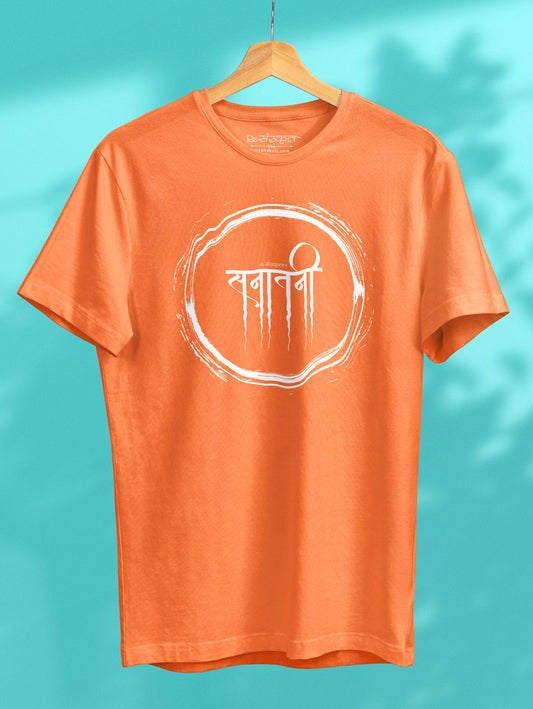
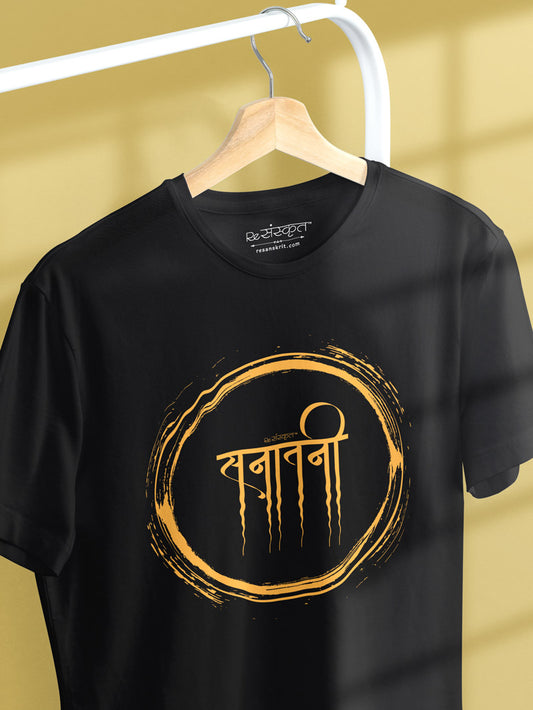

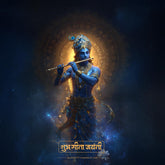
![[Part 2] Relevant Sanskrit Shlokas with Meaning in Hindi & English](http://resanskrit.com/cdn/shop/articles/Relevant-Sanskrit-Shlokas-Article-Cover-image-part-2_09a90484-465b-48ed-bedb-f7b37fa9baad_165x.jpg?v=1771770720)
Leave a comment
Please note, comments need to be approved before they are published.